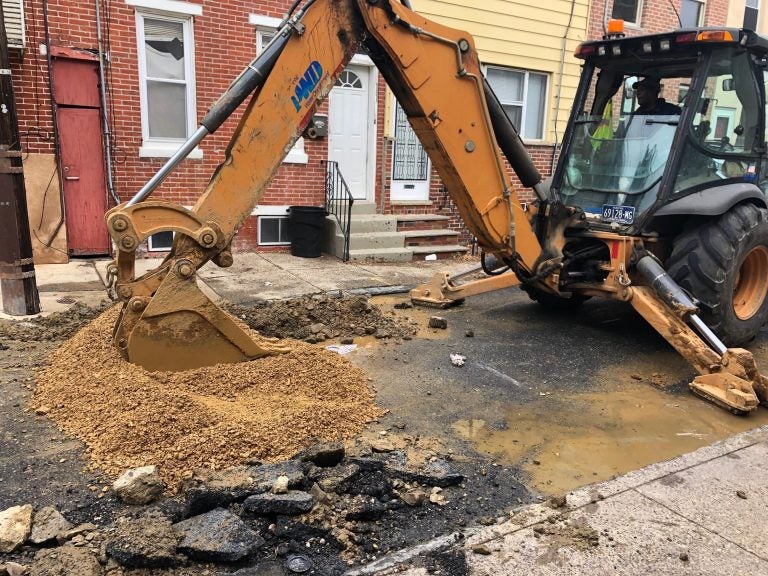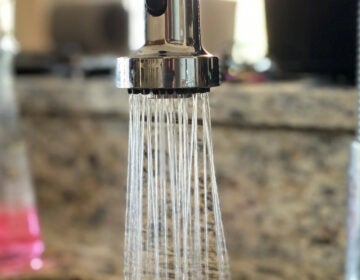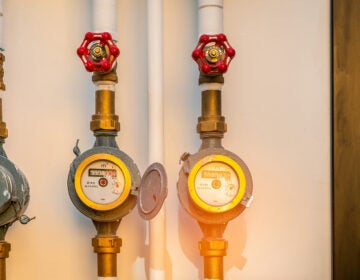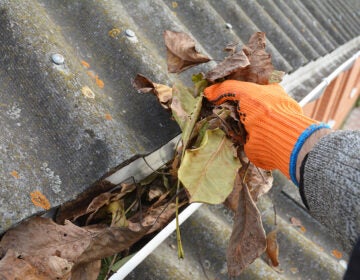As temperatures drop, Philly water department steps up
Last January, the Philadelphia Water Department had more than 300 water main breaks. So far this year, it has responded to only about 40.

A Philadelphia Water Department crew completed the fix of a water main break in South Philadelphia as the department steps up efforts to manage water main breaks during the winter. (Darryl Murphy/WHYY)
January 2019 has brought far fewer water main breaks in Philadelphia than last year. However, temperatures plunging into the single digits are bound to cause breaks and extra work for the Philadelphia Water Department.
In South Philadelphia, water department workers repaired a broken water main Sunday as temperatures began to drop to below freezing.
Department spokesman John DiGiulio says the repair is part of a larger effort to be ready for the stress the cold temps bring.
He says cold water pulled from the Delaware River or the Schuylkill can overstress the city’s cast iron mains and cause a break. There were more than 360 water main breaks in January 2018 due to prolonged, extremely cold weather.
“We’re monitoring the situation,” he said. “We always keep track of water temperatures coming out of the rivers and going into the system.”
This month, DiGiulio estimates there have been around 40 water main breaks.
“Hopefully it stays that way,” he said. “We don’t have the brutal winter ahead of us and we’ll see how things go. But the water department will be ready. We’ll be staffing appropriately to address [breaks] as they come in.”
The water department has switched over to its winter schedule. Crews now work 12 hour days, six days a week, to keep up with repairs and to be able to respond to breaks more quickly.
Last year’s influx of busted mains overtaxed the crews, said DiGiulio. They had to extend shifts from 12 to 16 hours, sometimes longer. In three months last winter, more than 700 water mains burst.
“This winter thankfully has not been as bad for water main breaks,” he said. “We’re nowhere near the number we saw last January. But I don’t want to jinx it because we just haven’t had the bitter, bitter cold that we experienced last year for such a prolonged period of time.”
WHYY is your source for fact-based, in-depth journalism and information. As a nonprofit organization, we rely on financial support from readers like you. Please give today.





